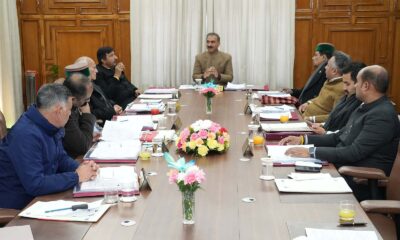Nation
Read Detailed Schedule for Lok Sabha Elections 2019
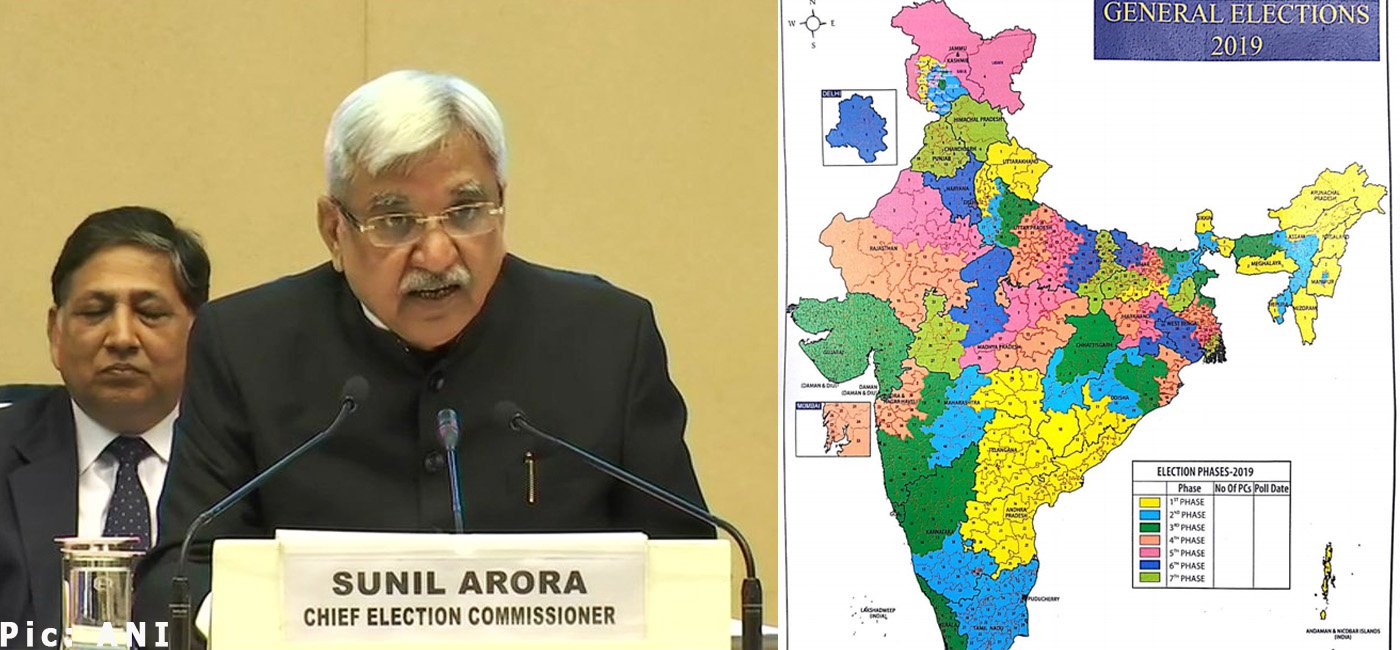
New Delhi-Considering the expiry of the five-year term of the 16th Lok Sabha on June 3, 2019, the Election Commission of India has issued the
With the announcement, the Model Code of Conduct (MCC) also came into operation from today.
The EC said that Elections to the Legislative Assemblies of the States of Andhra Pradesh, Arunachal Pradesh, Odisha and Sikkim will also be held along with the Lok Sabha polls.
Detailed Schedule for Lok Sabha Elections 2019
All-phases-of-lok-sabha-elections-2019Elections to the different Assembly Constituencies in the States of Andhra Pradesh, Arunachal Pradesh, Odisha and Sikkim will follow the same Schedule as for the corresponding Parliamentary Constituencies of which these are the relevant Assembly segments, the EC said.
He also informed that the final electoral roles with have a total number of voters in the vicinity of 900 million.
This marks an increase of 84.3 million voters since 2014. There are 15 million voters in the age group of 18-19. The number of polling booth has also increased from 9 Lakh to 10 Lakh ,
ANI quoted the Commissioner
Phase-wise Schedule
Phase 1, April 11
91 seats, 20 States
A.P. (all 25), Arunachal Pradesh (2), Assam (5), Bihar (4), Chhattisgarh (1) J&K (2), Maharashtra (7), Manipur (1), Meghalaya (2), Mizoram (1), Nagaland (1), Odisha (4), Sikkim (1), Telangana (17), Tripura (1), U.P. (8), Uttarkhand (5), W.B. (2), Andaman and Nicobar Islands (1), Lakshadweep (1)
Phase 2, April 18
97 seats, 13 States
Assam (5), Bihar (5), Chhattisgarh (3), J&K (2), Karnataka (14) Maharashtra (10), Manipur (1), Odisha (5), T.N. (all 39), Tripura (1), U.P. (8), West Bengal (3), Puducherry (1)
Phase 3, April 23
115 seats, 14 States
Assam (4), Bihar (5), Chhattisgarh (7), Gujarat (all 26), Goa (all 2), J&K (1), Karnataka (14), Kerala (all 20), Maharashtra (14), Odisha (6), U.P. (10), West Bengal (5), Dadra and Nagar Haveli (1), Daman and Diu (1)
Phase 4, April 29
71 seats, 9 States
Bihar (5), J&K (1), Jharkhand (3), M.P. (6), Maharashtra (17), Odisha (6), Rajasthan (13), U.P. (13), West Bengal (8)
Phase 5, May 6
51 seats, 7 States
Bihar (5), Jharkhand (4), J&K (2), M.P. (7), Rajasthan (12), U.P. (14), West Bengal (7)
Phase 6, May 12
59 seats, 7 States
Bihar (8), Haryana (10), Jharkhand (4), M.P. (8), U.P. (14), West Bengal (8), NCR (all 7)
Phase 7, May 19
59 seats, 8 States
Bihar (8), Jharkhand (3), M.P. (8), Punjab (all 13), West Bengal (9), Chandigarh (1), U.P. (13), Himachal Pradesh (all 4)
More Details Released by the Indian EC
Detailed-Lok-Sabha-Elections-2019-ScheduleNation
Most Covid Restrictions to be Lifted From March 31, Mask and Hand Hygiene to Continue
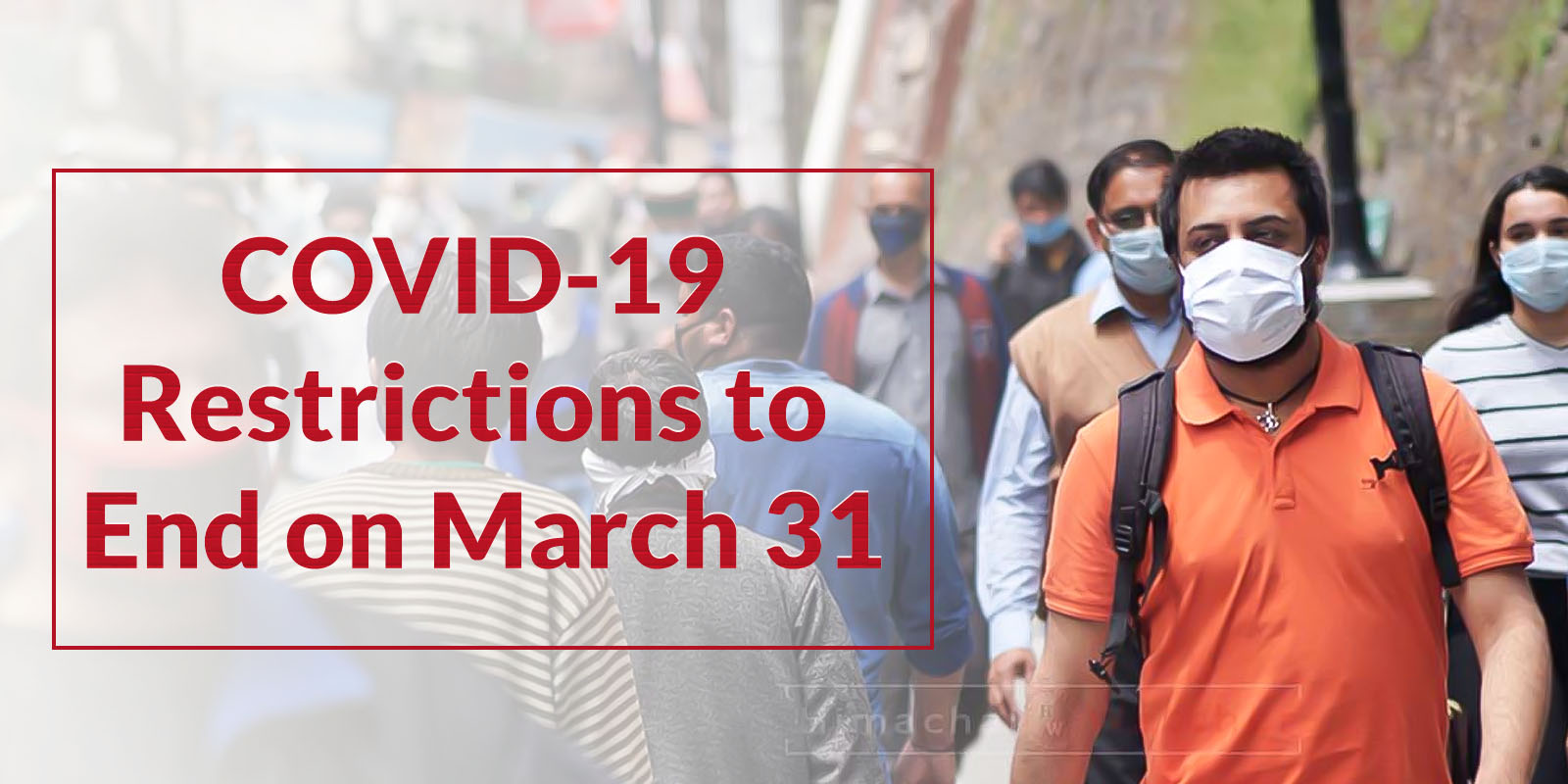
New Delhi-The Centre has issued a notification to the States informing that the provisions of the Disaster Management (DM) Act, 2005 will not be invoked in the country after March 31. The Union Health Ministry said that the use of face masks and following hand hygiene will continue.
It implies that most of the Covid-related rules and restrictions would end.
Union Home Secretary Ajay Bhalla issued the notification which said that the decision was taken following the overall improvement in the situation and the preparedness of the government in dealing with the COVID-19 pandemic.
However, local authorities and State police can still invoke fines and criminal cases against persons violating COVID-19 norms under the Indian Penal Code (IPC), a senior government official said.
The DM Act was invoked on March 24, 2020, due to the pandemic
“Over the last seven weeks or so there has been a steep decline in the number of cases. The total caseload in the country stands at 23,913 only and the daily positivity rate has declined to 0.28%. It is also worth mentioning that with the combined efforts, a total of 181.56 Cr vaccine doses have been administered,” the notification said.
“I would like to mention that in view of the nature of the disease, we still need to remain watchful of the situation. Wherever any surge in the number of cases is observed, the States/UTs may consider taking prompt and proactive action at a local level, as advised by MoHFW (Health Ministry) from time to time,” the notification said.
The Indian government had issued various guidelines and measures for the first time on March 24, 2020, under the Disaster Management Act to curb the COVID-19 situation in the country, which have been modified several times thereafter.
India currently has 23,087 active COVID-19 cases and recorded 1,778 new cases and 62 deaths in the last 24 hours. The daily positivity rate has also declined to 0.28%.
Nation
Vaccination of 15-18 Year Age Group in India from Jan 3, Precautionary Dose for Frontline Workers from Jan 10
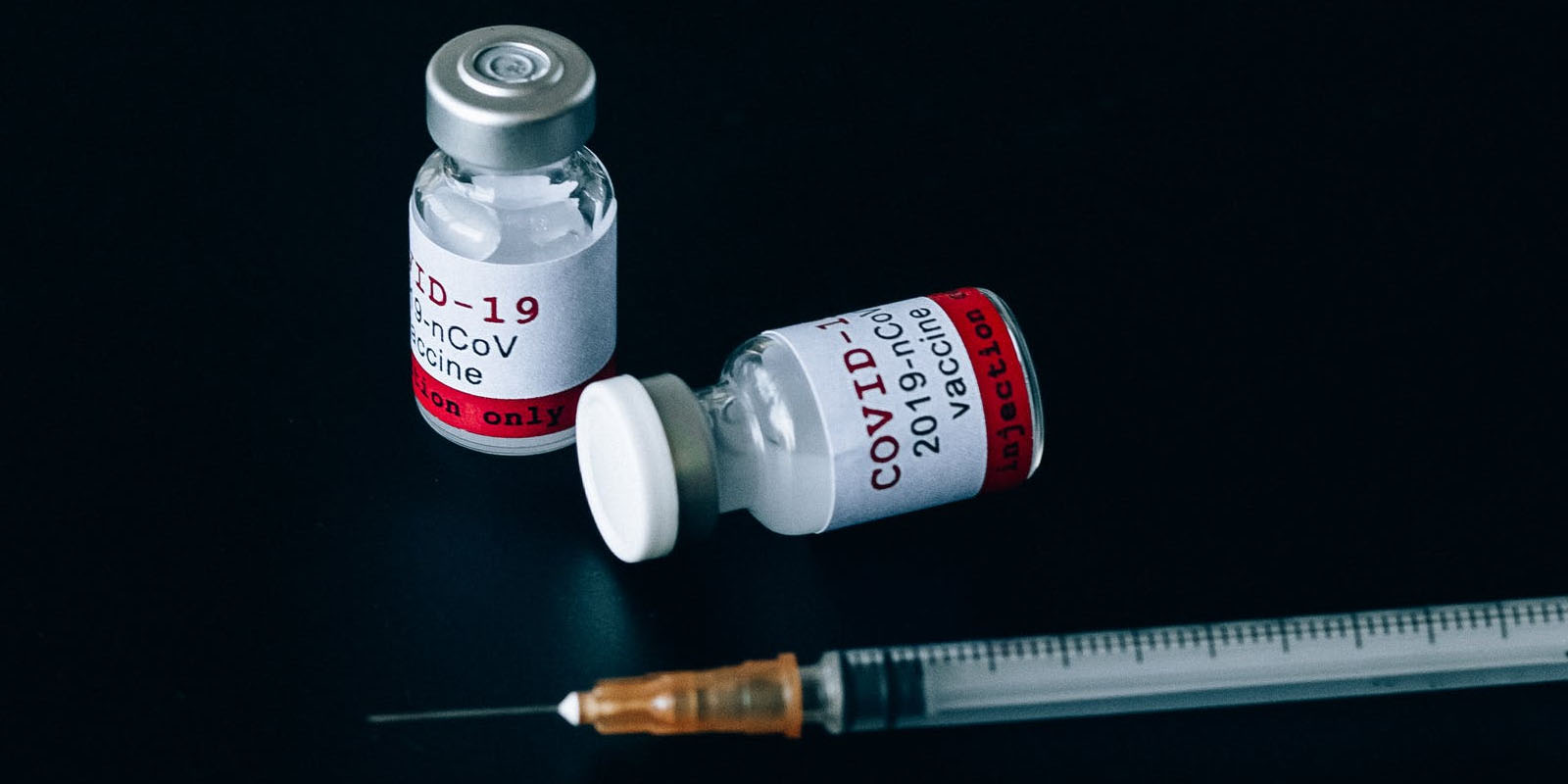
New Delhi-India will begin vaccination of the children in the age group of 15-18 years from 3rd January 2022. The move is likely to aid in education normalization in schools. The announcement was made by Prime Minister Narender Modi on Saturday evening. He also announced a precaution dose (booster dose) for healthcare and frontline workers from 10th January 2022, Monday.
In India, this has been called the ‘precaution dose’ not booster dose. An option of precaution dose will be available for senior citizens above 60 years of age with co-morbidities on the advice of their doctors from 10th January 2022.
Referring to the Omicron infections In India, the Prime Minister requested the people not to panic and to follow precautions such as masks and washing hands repeatedly.
According to the Government, the vaccination campaign started on 16th January this year has crossed the mark of 141 crore doses, and 61 percent of the adult population of the country has received both the vaccines and 90 percent of adults have received one dose.
According to the Government statistics, currently, the country has 18 lakh isolation beds, 5 lakh oxygen supported beds, 1 lakh 40 thousand ICU beds, 90 thousand ICU and Non-ICU beds especially for children, more than 3 thousand PSA oxygen plants, 4 lakh oxygen cylinders and support to states is being provided for buffer doses and testing.
The Prime Minister assured that soon the country will develop a nasal vaccine and the world’s first DNA vaccine.
Photo by Nataliya Vaitkevich from Pexels
Nation
Three Farm Laws to be Withdrawn, Announces PM Modi Ahead of Elections in Punjab and UP
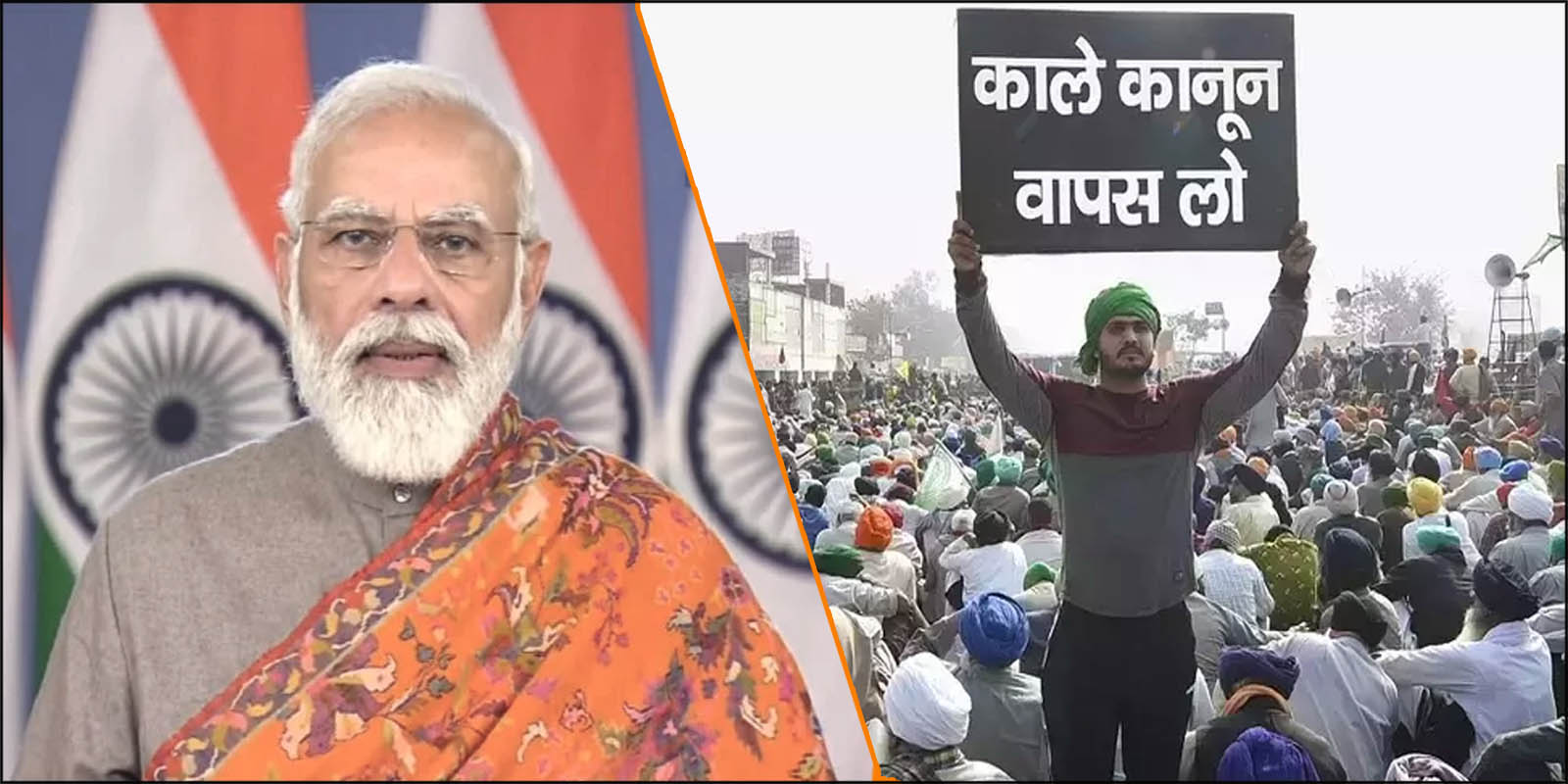
New Delhi: Ahead of assembly polls in Punjab and Uttar Pradesh, Prime Minister Narender Modi on Friday retreated from his stand on the three contentious farm laws and announced that the government will repeal three laws. He requested the protesting farmers to end the protest that has been going on for over a year now.
He said the three laws would be repealed in the winter session of Parliament starting later this month. He also said that though the laws were in the interest of the farmers, his government failed to convince them.
आज मैं आपको, पूरे देश को, ये बताने आया हूं कि हमने तीनों कृषि कानूनों को वापस लेने का निर्णय लिया है।
इस महीने के अंत में शुरू होने जा रहे संसद सत्र में, हम इन तीनों कृषि कानूनों को Repeal करने की संवैधानिक प्रक्रिया को पूरा कर देंगे: PM @narendramodi
— PMO India (@PMOIndia) November 19, 2021
The Prime Minister chose the occasion of Guru Nanak Jayanti to make this announcement. The decision is being perceived as an attempt to appease the farmers, especially in Punjab ahead of the assembly polls. Also, the results of by-poll held in various states are being seen as a setback to the ruling government that compelled it to reconsider its stand on the farm bills.
The Prime Minister said, “today I have come to tell you, the whole country, that we have decided to withdraw all three agricultural laws. In the Parliament session starting later this month, we will complete the constitutional process to repeal these three agricultural laws”.
It’s pertinent to mention that the Centre government had to announce a cut in taxes on petrol and diesel right after the results of bye polls were declared.
The three contentious bills are The Farmer’s Produce Trade and Commerce (Promotion and Facilitation) Bill, 2020, the Farmers (Empowerment and Protection) Agreement of Price Assurance and Farm Services Bill, 2020 and the Farmers’ Produce Trade and Commerce (Promotion and Facilitation) Bill.
The opposition Congress and farmers’ bodies have termed it a victory of their unity against the government’s decision. Former Chief Minister of Punjab, Captain Amarinder Singh was one of the first to welcome the decision through a Tweet.
Great news! Thankful to PM @narendramodi ji for acceding to the demands of every punjabi & repealing the 3 black laws on the pious occasion of #GuruNanakJayanti. I am sure the central govt will continue to work in tandem for the development of Kisani! #NoFarmers_NoFood @AmitShah
— Capt.Amarinder Singh (@capt_amarinder) November 19, 2021
यह जीत देश के किसानों की जीत है, लोकतंत्र की जीत है।
किसानों की जीत ने स्पष्ट कर दिया है- भारत में कभी तानाशाही हावी नहीं हो सकती, आखिर तानाशाह को झुकना पड़ा।#जीता_किसान_हारा_अभिमान pic.twitter.com/A9psOtBGq8
— Congress (@INCIndia) November 19, 2021


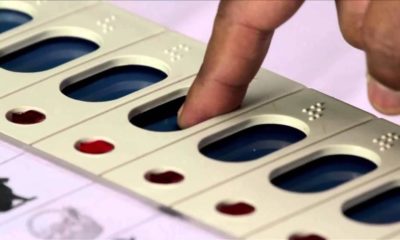

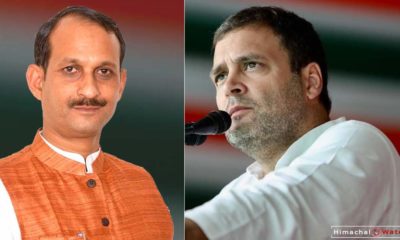

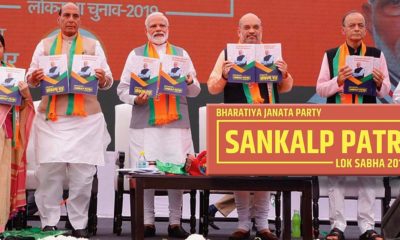







 Home Decor Ideas 2020
Home Decor Ideas 2020